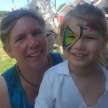What is World Schooling?
Spoiler Alert: It's a travel mindset.

Everyone has an idea that world schooling begins with travel. It doesn’t. World schooling starts with a mindset. It is born through a love of travel and learning from and about the world, and it knows that the world and the people in it are our best teachers.
Once you have adopted a world schooling mindset, it is easy to see that people can receive no greater education than experiencing and interacting with the world around them. Traveling together and finding education from the real world removes teachers, classrooms, schools, and set curriculums. It opens doors, opportunities, and possibilities. It offers the opportunity for freedom in both education and life.
A world schooling mindset includes:
- a desire to travel
- a wish to involve children in the wider world around them through a holistic approach to learning
- a preference for experiential learning to solidify knowledge
- a need for flexibility in exploring children’s talents that traditional schooling cannot provide
- a commitment to developing critical thinking skills and a global perspective
- a desire to understand and become sensitive to other worldviews
- a willingness to step outside your comfort zone
A Desire to Travel
A desire to travel is not a desire to vacation. Vacations create moments. Travel creates connections. Going on vacation generally means going to a place to see the things you have heard about in that place. If you go to Paris, you want to see the Eiffel Tower, the Arc de Triomphe, the Louvre. Perhaps you want to eat in a café or stroll along the Champs-Élysées. These are all things that fit easily in a week or two and involve only a guidebook, website, or a few recommendations. They are things that you have heard about and are things one “must do” when one visits Paris. Traveling to Paris might, and probably does, involve doing some or all of these things, but it also involves more. Travel involves meeting people. It means learning about the culture and the way of life. You might arrive in Paris and find that the transit workers are on strike. Vacationers will focus on how to get to see the things they want to see. Travelers will find out about the strike and its impact. They may or may not try to circumvent the strikers in order to traverse the city. They will learn to see the strike, as much as possible, as the locals see it and to understand the implications of circumventing the problems it presents.
A Wish to Involve Children in the Wider World Around Them Through a Holistic Approach to Learning
Children are hard-wired to learn and naturally curious. When they come across a bug, they want to know what kind of bug it is, if it will bite them where it comes from, what it eats, and if it can fly. When they enter a new place, they want to know all about it: who lives there, why do they dress the way they do, what language do they speak, what do they eat, will they play with me, and a hundred other things. It is possible to answer these questions, to a limited degree, through a vacation, but world schooling invites them to ask these questions and to learn about a place and the people who live there through experiences that reach below the surface.
A holistic approach to learning is one that answers these questions by engaging children’s intellectual, emotional, social, physical, artistic, and creative potentials. It encourages personal and collective responsibility. Instead of learning about Paris through landmarks and, perhaps, supplemental reading, children learn about Paris and Parisians through interactions.
A Preference for Experiential Learning to Solidify Knowledge
Learning that mosquito bites sting is not the same as being bitten by a mosquito. Once you have had a mosquito bite, you will not quickly forget what it feels like. That is the difference between experiential learning and didactic or instructional learning. World schoolers prefer to learn through experiences. Instead of reading about the Eiffel Tower or looking at pictures of it, world schoolers walk underneath it and get a sense of how tall it really stands. Unlike vacationers, who also see how tall it really is, world schoolers try to understand the implications of having the Eiffel Tower as part of your neighborhood. They try to understand what it means to live and work with a world-famous structure as part of your daily life.
A Need for Flexibility in Exploring Children’s Talents that Traditional Schooling Cannot Provide
Traditional schools are built to produce a common base of knowledge. There are basic subjects that are required, grades that measure progress, and a standard amount of time in which to complete the process. They move, linearly, from one topic to another in an effort to make sure that each new idea builds on the previous one. The problem with this model is that it does not represent how people actually learn. In reality, people learn by following ideas that interest them. A child might practice the violin to the exclusion of all other things for a month or a year or might start practicing the violin, and then wonder how they were made, and then find a famous violin maker and wonder what their life was like and start learning about that. That might lead them to wonder what life was like in the town in which they lived, which, in turn, might lead them to find out about an event that happened in that town, which could lead them to learn about the farming practices in the area, which could lead them to a war that forced all the farmers to become soldiers. All of this might mean that they never learn to play the violin, it could be that months or years down the road, they pick up the violin and learn to play it, or it could be that instead of a budding violinist, they are actually going to be a historian!
None of this is possible in a traditional school environment because schools cannot offer that kind of flexibility. World schooling offers this flexibility and more. It offers you the chance to take your budding violinist to the very place where the violin maker was born and to see what follows from that.
A Commitment to Developing Critical Thinking Skills and a Global Perspective
In order to world school, it helps to understand the basics of critical global literacy: colonialism, capitalism, conflict, citizenship, and conscientious consumerism. While these are bigger topics than we can go into here, unless you can commit to trying to understand the world from a perspective that includes looking critically at how you were taught about the world, your world schooling experience will be limited by your perspective. We all carry misinformation and stereotypes about people in different cultures. People acquire this information in bits and pieces from TV, from listening to people talk, and from our culture at large. We are not bad people because we acquired this; no one requested to be misinformed, but in order to build relationships with people of different cultures, we have to become aware of the misinformation we acquired. If you approach another culture using the points of reference from your culture, you cannot fully appreciate or participate in that other culture.
A Desire to Understand and Become Sensitive to Other Worldviews
This is sometimes called cultural sensitivity, and it simply means that you’re willing to ask honest questions, seek understanding, and demonstrate empathy rather than judging those around you. It also means that, when you knowingly enter a space in which there will be cultural differences at play, you do a bit of homework beforehand and avoid knee-jerk reactions or jumping to conclusions. It doesn’t mean that you have to be an expert in another’s culture’s values, customs, or beliefs.
The most important thing when it comes to acting in a culturally sensitive way is that you remember to ground each interaction you have with others in the understanding that their background, experiences, and values naturally vary from your own. This will help you to lead with understanding and empathy, rather than judgment, which is an incredibly powerful shift. By acting with understanding and empathy, you move from centering the world around you to centering yourself in the world.
A Willingness to Step Outside Your Comfort Zone
This last one is key. If you are not willing to push your boundaries, world schooling will soon become overwhelming, and you will fall back into a mindset of stability and nesting. Being in one’s comfort zone implies familiarity, safety, and security. It describes the patterned world of your existence, keeps you relatively comfortable and calm. Stepping outside your comfort zone (and helping your children to so) challenges you to dip into and utilize your personal store of knowledge and resources. This is scary, but even if you make mistakes or don’t get it right the first time, those mistakes become experiences you can use in the future. Each time you try something new by allowing yourself to be open to whatever experience arises, you are learning and expanding your repertoire of life skills, and as you do this you are increasing the size of your comfort zone.
Adopting a world schooling mindset will help you to travel confidently. As a world schooler, you will be faced with cultural norms and experiences that challenge everything you thought was true about the world. In practice, world schooling means making experiencing and committing to learning from the world a priority in your life. The transition from vacationer to traveler to world schooler takes time and patience, but it is well worth the effort.
____________________________________________________
If you enjoyed this, please consider donating to me. I would love if you’d help me to keep creating stories.
https://www.buymeacoffee.com/wordsmithweb
About the Creator
Jean Elizabeth Glass
I write things. A lot. I love to travel and will be a full-time nomad later this year. I do editing and content creation, and I am the proof-reader of your dreams. You can find me at wordsmithweb.com






Comments
There are no comments for this story
Be the first to respond and start the conversation.